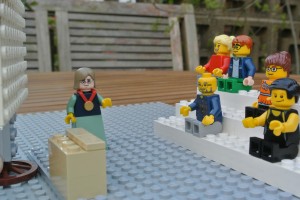
We still tend to think of the holy trinity of our university work, ‘research-teaching-societal responsibility’, as separate sectors, mainly looked at from the national perspective. But this is an out-dated view: we might more profitably understand these as inseparable components of academic life, where a researcher slips between roles without privileging one over the other, and without regard to national boundaries.
At the moment, however, we have yet to convince our colleagues that teaching is not secondary to scholarship and that making a societal impact is not an additional burden but rather a way to interact even more fruitfully not only with our own society but also with others.
Instead of giving little weight to teaching and underestimating the social task, we could see them as possibilities for disseminating research results, for translating science into a ‘different language’ for new audiences, both at home and abroad. Moreover, if we take into consideration the enormous prospects embedded in international teaching and international societal activity, such dissemination of knowledge is not only much broader in scope but is also more effective in impact than the rather limited range of international scholarly publications.
It is time to rethink the comprehensive possibilities of international education. By investing more effort into high quality courses and international teaching cooperation, we could generate considerably more global interest in our research. Moreover, by entering the international education market, we can export teaching packages that represent not only curricular know-how and the famous Finnish pedagogy, but also more importantly our understanding of democratic values.
Innovative pedagogies can be used to advance critical thinking even in politically hostile, non-democratic environments. If we perceive our societal responsibility globally, our research and teaching could become much more than international dissemination or plain schooling — we could in fact make a difference.
The author is docent in political history at the University of Helsinki, working as a senior researcher at the Aleksanteri Institute. She is a founding member of the Teachers’ Academy.
